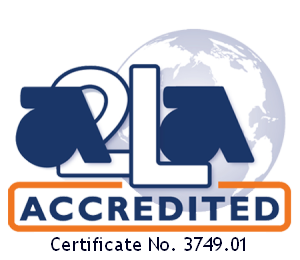And other topics presented at MedLab Middle East 2024
CMPT Chair Dr. Lucy Perrone was invited to give two talks at the MedLab Middle East Conference in Dubai in February and shares this report regarding major themes and topics.
A big topic at Medlab Middle East was ISO accreditation. Historically, many labs in this region followed a model more aligned with the United States’ Clinical Laboratory Improvement Amendments (CLIA, 1988) regulations, which governs clinical labs in the US. However, many countries and laboratories are showing an interest in the value of ISO 15189:2022 accreditation. The main reasons are flexibility and relevance. ISO 15189:2022 Medical laboratories — Requirements for quality and competence is the global standard for medical laboratories, so aligning with it gives laboratories greater international visibility and recognition of their quality. Laboratories also have more choice and flexibility with an ILAC approved accreditation provider, which can be local and can save money. It also means that labs are not tied to specific mandates from a specific accreditation body (see our feature article on new breakpoint regulations from the FDA and CLSI).
Workforce burn-out is a global problem – in testing labs and elsewhere in healthcare – especially following the global COVID-19 pandemic.
Automation in the laboratory was another main theme. Molecular platforms, syndromic testing by multiplex, etc. allow for significant efficiencies in clinical testing, both in terms of time and cost savings. Rather than waiting days for a chain-linear series of siloed lab investigations to be completed, a single multiplexed assay on an automated system using molecular methods could detect a variety of different organisms in much less time, and for the cost of performing a single test rather than several. Given the staffing shortages apparent in medical testing labs throughout the world, this is appealing to laboratories who are dealing with overworked staff and lab service overutilization.

Lastly, there were several in-depth discussions about laboratory sustainability. Workforce burn-out is a global problem – in testing labs and elsewhere in healthcare – especially following the global COVID-19 pandemic. Dr. Perrone’s talk addressed this issue and spoke to the need for lab directors and managers to prioritize operations oversight, assessing laboratory utilization trends by customers, and recalibrating testing workflows and staffing from the high testing demands of the pandemic. She also emphasized organization health and culture, the need for employee appreciation and retention programs and professional development opportunities such as continuing education, upskilling and offering responsibilities and growth opportunities whenever possible.
Overall, the MedLab Middle East conference was an exciting opportunity to showcase CMPT’s work as a quality partner, network, share knowledge, grow international collaborations in the diagnostic testing field.
CMPT looks forward to attending again.



